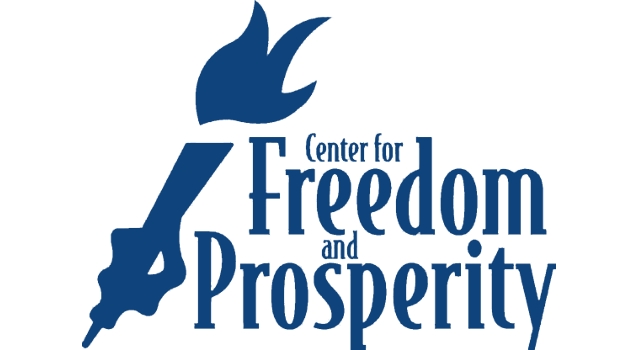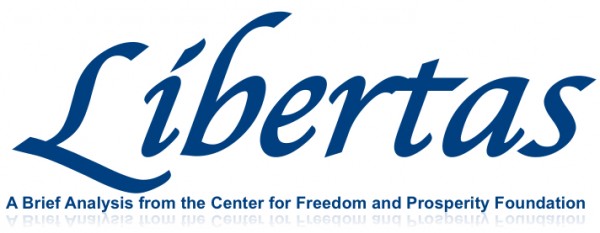The Case Against Taxing Powers and Direct Funding for International Organizations
International Organizations have historically relied upon payments from member governments to finance their operations. This creates a semblance of accountability since nations can withhold funding or withdraw membership if an organization engages in improper or imprudent behavior.
Since the bureaucrats running international organizations are not elected, such indirect control is the only way for national governments – on behalf of their taxpayers – to oversee the responsible use of funds.
This is why it would be imprudent to give international bureaucracies an independent source of revenue. Not only would this augment the already considerable risk of imprudent budgetary practices, it would exacerbate the pro-statism bias in these organizations.
Moreover, the first incidence of direct taxation to fund an international organization would unleash a tidal wave of similar direct-funding proposals. The camel’s nose would soon become an entire animal, then followed by a herd.
Global Tax Proposals
The issue of taxing powers and direct funding has become an important issue because international organizations are challenging the contribution model and pushing for independent sources of revenue.
The United Nations has been particularly aggressive in pushing for global taxes, seeking to expand its budget with levies on everything from carbon to financial transactions. Indeed, financial transactions have long been the go-to tax option for would be tax collectors. The United Nations Development Programme (UNDP) has been pushing for this levy for decades. Most recently, the 2011 Human Development Report, commissioned by the UNDP, called for a global redistribution regime – financed by taxes on either international currency or financial transactions – in order to promote “social justice within and amongst nations,” and “to fund the fight against climate change and extreme poverty.”
Another subsidiary of the United Nations, the World Health Organization (WHO), is also looking to self-fund through global taxes. The WHO in 2010 publicly considered asking for global consumer taxes on internet activity, online bill paying, or the always popular financial transaction tax. Currently the WHO is pushing for increased excise taxes on cigarettes, but with an important condition that they get a slice of the added revenue. The so-called Solidarity Tobacco Contribution would provide billions of dollars to the WHO, but with no ability for taxpayers or national governments to monitor how the money is spent.
The Dangers
What all of these proposals have in common – in addition to their obvious intended use in promoting statist policies – is that they would erode the influence of national governments, reduce international accountability, promote waste, and undermine individual sovereignty and liberty.
The imposition of global taxation to fund international organizations would require the cooperation of national governments to act as collection agents. While this means governments will not be entirely powerless, it is also important to realize that there will be immediate and ongoing pressure to reduce the role and influence of national governments.
Before long, international organizations will begin proposing – no doubt in the name of efficiency or reducing the burden on nation states – that affected taxpayers withhold and transfer taxes directly to the international body. This would effectively mean the end of the Westphalian system of sovereign nation-states, and would result in a slew of new statist policies, and increased waste and corruption, as bureaucrats make use of their greater freedom to act without political constraint.
As elected governments at the national level lose sovereignty to international bureaucrats, individuals will inevitably suffer. Citizens are able to provide a check on government policy through a multitude of mechanisms, such as voting, lobbying, or even emigration, but those options will be unavailable to them when it comes to taxes levied by international organizations. Given that politicians and bureaucrats will naturally seek to expand their influence and power as far as these various political constraints will allow them, the absence of external restraints on international organizations will mean more statist policies and greater infringements on individual liberty. The one-size-fits-all nature of the proposals also prohibits consideration of local factors, such as a countries’ stage of economic and social development, rendering many of them ineffective at their intended goals.
National governments have something that the unelected international bureaucrats desperately want: taxing power. The bureaucrats need national governments to believe that they will not lose sovereign power as the international organizations attempt to get direct-funding authority.
National governments should not be fooled. Any sort of taxing power or direct funding for international bureaucracies would undermine national sovereignty. More importantly, it will further weaken the ability of people to influence and control the policies to which they are subjected. Moreover, once the first global tax is imposed, the floodgates will be opened for similar proposals.
To the unelected bureaucrats at international organizations, the absence of democratic accountability is a feature, not a bug. That’s why direct funding and taxing powers inevitably will lead to an expansion of big government policies implemented under a one-size-fits-all international system.


